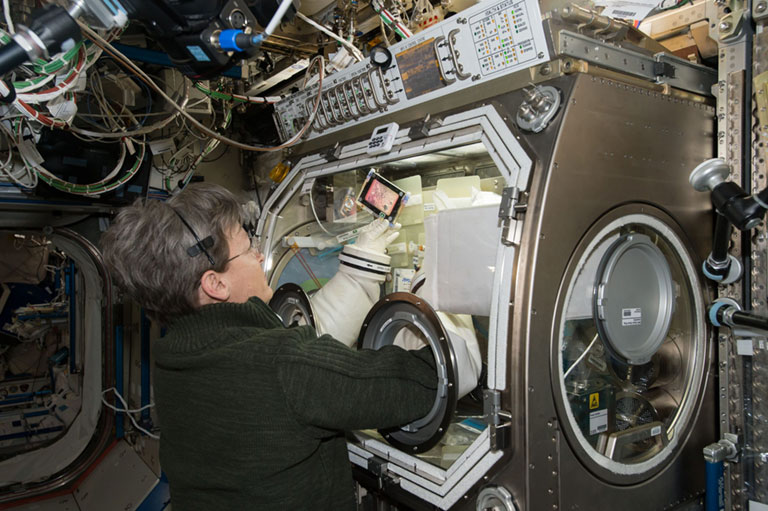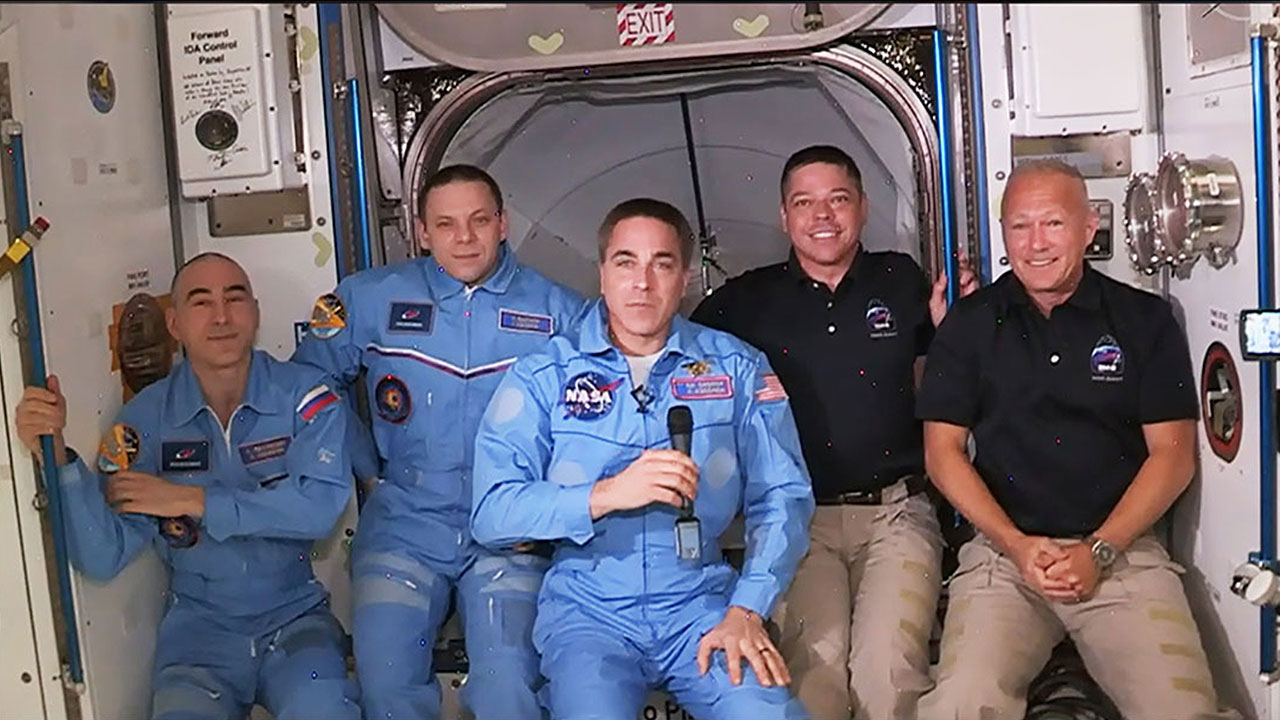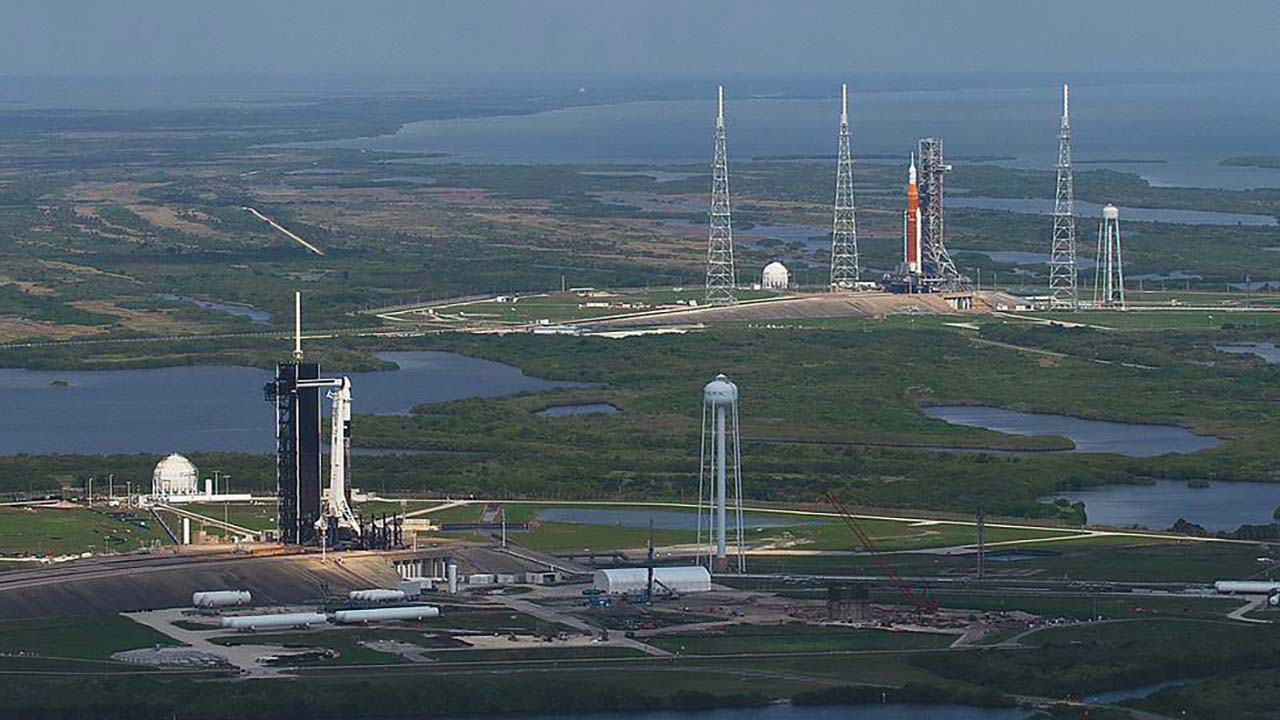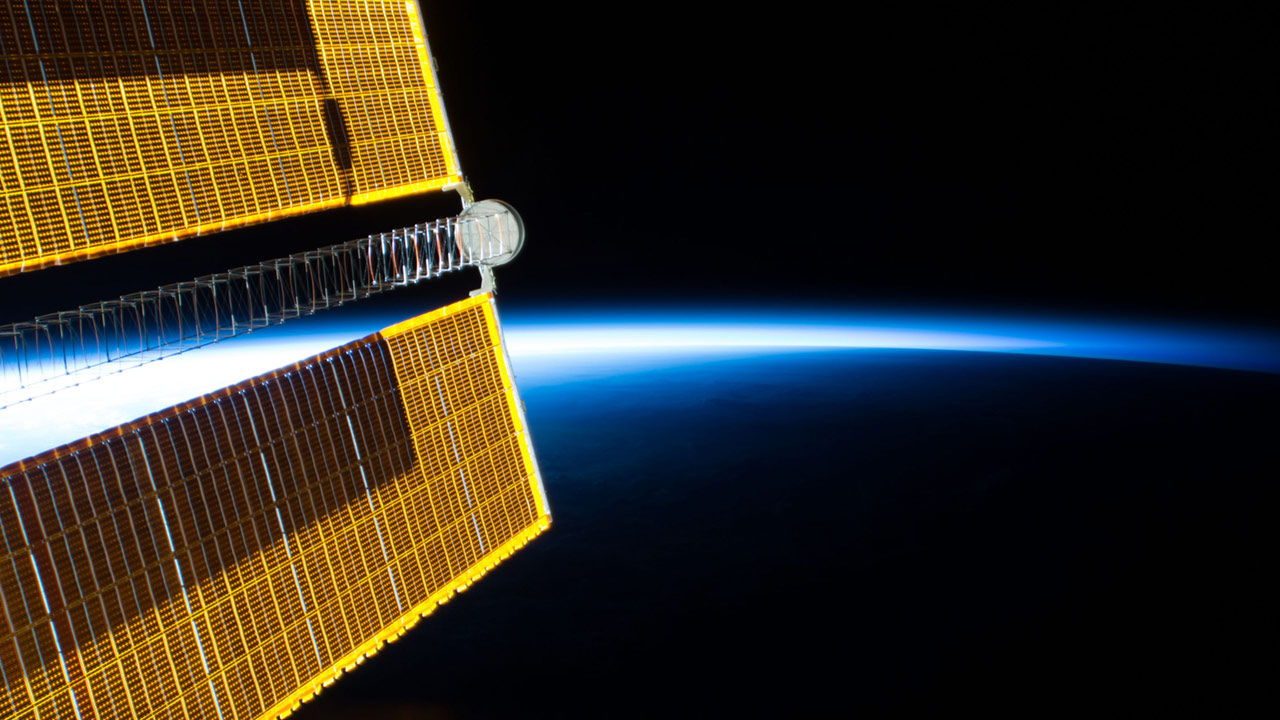At a Glance
- Results from an ISS National Lab-sponsored investigation led by principal investigator Dr. Abba Zubair, Director of Transfusion Medicine and Stem Cell Therapy at the Mayo Clinic, were published in the journal Nature Microgravity.
- The investigation established the feasibility and safety of growing mesenchymal stem cells (MSCs) in space for human clinical applications.
- The research team found that MSCs grown in microgravity have a comparable growth rate compared with ground controls, but MSCs appear to survive better in microgravity.
- Results also showed that MSCs expanded on the ISS are more immunosuppressive than ground controls.
- The study demonstrated that MSCs can be expanded on the ISS without microbial contamination, and after two weeks, the MSCs showed no evidence of tumor formation.
With an increasing percentage of Americans that are 65 years and older, age-related conditions such as stroke, cancer, dementia, and neurodegenerative disease pose an escalating health burden in the United States. Researchers in the field of regenerative medicine are continually working to advance stem cell-based therapies that could help treat patients with these conditions. However, stem cell-based therapies require large numbers of stem cells that are difficult to produce.
Stem cells do not grow well in standard two-dimensional cell cultures, as this environment significantly differs from the conditions in which cells grow within the body. Microgravity conditions on the International Space Station (ISS) enable three-dimensional cell growth that more closely recapitulates cell growth in the human body. Thus, microgravity may provide an improved environment for stem cell growth and expansion.
In our ISS U.S. National Laboratory study, we evaluated the growth of human-derived mesenchymal stem cells (MSCs) in space for potential use in clinical applications on Earth and on future long-duration spaceflight missions. We assessed the identity, purity, viability, and sterility of the space-grown cells compared with ground controls, as well as the cells’ functional characteristics and potential to become cancerous. Based on our results, which were recently published in the journal Nature Microgravity, we successfully established the feasibility and safety of growing MSCs on the ISS for human clinical applications.

Media Credit: Image courtesy of NASA
MSCs are multipotent cells that play an important role in the activation of immune cells and in promoting tissue repair and regeneration.1 MSCs can differentiate into several different kinds of cells, including osteocytes (a type of bone cell), chondrocytes (cells found in cartilage), and adipocytes (a type of connective tissue cell that stores energy as fat). Additionally, MSCs secrete cytokines and growth factors that promote the regeneration of tissue-specific stem cells such as neural, hematopoietic (stem cells that develop into blood cells), and skeletal stem cells.
Adult tissues contain only small numbers of stem cells—it is believed that less than one percent of cells in a given organ are stem cells.2 When stem cells are grown in culture and proliferation is induced, it can activate pathways in the cells involved in differentiation, and the stem cells may lose their ability to develop into different cell types.2 Furthermore, the growth media used in standard cell cultures does not provide ideal growth conditions,3 and even if stem cell expansion is successful, it is typically a slow process. This makes it challenging to expand stem cells into the large numbers needed for clinical applications.
To evaluate the feasibility, potency, and safety of expanding stem cells in microgravity for use in clinical settings, we examined the growth of MSCs onboard the ISS National Lab. For the investigation, we used hardware specifically designed to safely transport the cells to the ISS for culture in space. While in orbit, the MSCs were imaged every 24 to 48 hours, and the cells were harvested at 7 and 14 days. Samples from the culture were frozen, and the cells were cryopreserved.
After the samples were returned to Earth, the space-grown MSCs were analyzed to establish their identity and cell cycle status. We also assessed cell proliferation and differentiation as well as cytokine and growth factor secretion. To determine the potential of the space-grown MSCs becoming cancerous, we used chromosomal, DNA damage, and tumorigenicity assays.
Our results showed that microgravity significantly altered MSC secretion of cytokines and growth factors. Additionally, the space-grown MSCs appeared to be more immunosuppressive than ground controls, and we found no evidence of cancer development. Therefore, through our ISS National Lab investigation, we were able to demonstrate that it is both feasible and potentially safe to grow MSCs in microgravity for possible future clinical applications.






